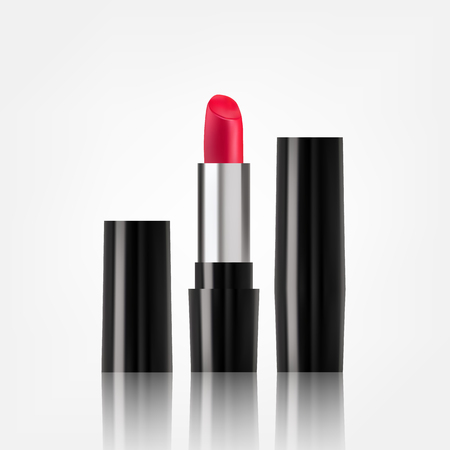Introduction to Sustainable Packaging in Cosmetics
In recent years, the beauty industry in the UK has witnessed a significant transformation, particularly in the realm of sustainable packaging. As British consumers become increasingly eco-conscious, their preferences are shaping the strategies of cosmetics brands, especially those specialising in lipstick and lip gloss. The demand for environmentally friendly alternatives is now more than just a fleeting trend—it’s a movement fuelled by greater awareness of plastic pollution, waste reduction, and responsible consumption. This shift is prompting leading and emerging UK brands alike to re-evaluate their packaging choices, seeking innovative solutions that minimise environmental impact without compromising on product quality or aesthetic appeal. As we explore this evolving landscape, it becomes clear that sustainable packaging is fast becoming a key differentiator in the highly competitive beauty sector.
2. Key Materials and Innovations in Sustainable Lip Product Packaging
As the UK beauty industry pivots towards more sustainable practices, lipstick and lip gloss brands are embracing a new generation of eco-friendly packaging materials. These innovations not only reduce environmental impact but also appeal to a growing segment of ethically conscious consumers. Here’s an in-depth look at the leading materials and their adoption among prominent British brands.
Popular Eco-Friendly Materials
| Material | Description | UK Brands Adopting |
|---|---|---|
| Biodegradable Plastics | Derived from plant-based sources such as corn starch, these plastics decompose naturally, minimising landfill waste. | Lush, Beauty Kitchen |
| Recycled Aluminium | Sourced from post-consumer aluminium, this lightweight metal is endlessly recyclable and significantly reduces carbon emissions during production. | Charlotte Tilbury, Lush |
| FSC-Certified Paper | Sustainably harvested paper with certification from the Forest Stewardship Council, ensuring responsible forestry management. | Naturisimo, UpCircle Beauty |
Innovative Approaches in Packaging Design
British brands are not just swapping materials—they’re rethinking packaging design entirely. Some are introducing refillable lipstick cases to encourage repeat use rather than disposal. Others are adopting minimalist designs that use fewer components or prioritise mono-material construction for easier recycling. For example:
- Lush: Offers ‘naked’ lip balms without any external packaging.
- Beauty Kitchen: Implements return schemes where customers can send back empty containers for cleaning and reuse.
The Impact on Brand Perception and Consumer Choice
The move to sustainable packaging is more than an environmental statement—it’s a powerful marketing tool in the UK market. Consumers increasingly scrutinise packaging claims, seeking transparency about materials and their end-of-life impact. British brands leading in sustainability tend to foster greater loyalty among eco-aware shoppers, setting themselves apart in a competitive marketplace.
Conclusion: A Blueprint for the Future
With continuous advancements in biodegradable plastics, recycled metals, and responsible paper sourcing, UK lipstick and lip gloss brands are charting a course toward a circular economy. Their commitment to innovation ensures that sustainability remains at the forefront of British beauty retail.

3. Spotlight on British Brands Leading the Change
When it comes to sustainable packaging in the world of UK lipstick and lip gloss, several British brands have truly stepped up their game. These pioneers are not only setting new standards for eco-friendly beauty but are also winning over conscious consumers who demand more from their favourite cosmetics. Let’s take a closer look at some standout names and what makes their approach genuinely noteworthy.
Lush: Zero-Waste Commitment
Lush, a household name for ethical beauty, has led the way with its naked lip products—solid balms and tints sold without any conventional packaging. The brand’s commitment extends beyond just eliminating plastic; they use recycled and recyclable materials whenever a container is absolutely necessary, such as their iconic black pots made from 100% post-consumer recycled plastic.
Charlotte Tilbury: Refillable Revolution
High-end brand Charlotte Tilbury has introduced refillable lipstick cases, allowing customers to keep their beautifully designed tubes and simply purchase refills when needed. This move reduces waste significantly while maintaining a luxurious feel—a clever blend of sustainability and style that appeals to British shoppers looking for both glamour and green credentials.
PHB Ethical Beauty: Compostable Innovation
PHB Ethical Beauty stands out with its 100% compostable lipstick packaging made from paper and plant-based materials. Every component—from the tube to the outer box—is biodegradable, ensuring minimal environmental impact at every stage of the product’s life cycle.
Comparison Table: UK Lipstick & Lip Gloss Brands Embracing Sustainability
| Brand | Sustainable Packaging Initiatives | Eco Credentials |
|---|---|---|
| Lush | Naked (package-free) lip balms and 100% recycled pots | Vegan, cruelty-free, zero-waste options |
| Charlotte Tilbury | Refillable lipstick cases and recyclable components | B Corp certified, responsible sourcing policies |
| PHB Ethical Beauty | Compostable tubes & boxes from plant-based materials | Certified organic, vegan society approved |
The Impact on Consumer Choice
The visible efforts by these brands signal a shift in industry standards and consumer expectations across the UK. Their innovative approaches not only reduce waste but also inspire other companies to rethink traditional packaging. British consumers increasingly expect transparency, traceability, and genuine commitment from their chosen beauty brands—and these leaders are showing that sustainability need not compromise quality or style.
4. Consumer Perception and Market Response in the UK
The move towards sustainable packaging in UK lipstick and lip gloss brands has ignited significant interest among British consumers. With an increasing environmental consciousness, many shoppers now scrutinise product packaging as closely as the ingredients within. Recent surveys reveal that sustainability is not just a buzzword but a genuine purchasing motivator for beauty enthusiasts across the UK.
Changing Preferences: What Do British Consumers Value?
UK consumers are demonstrating a clear preference for brands that offer recyclable, biodegradable, or refillable packaging options. Many buyers perceive sustainable packaging as an indicator of brand integrity and social responsibility. As a result, companies investing in eco-friendly materials often enjoy heightened brand loyalty and positive word-of-mouth recommendations on social platforms.
Perceived Value and Willingness to Pay
Interestingly, British shoppers are increasingly willing to pay a premium for products packaged sustainably. The perceived value extends beyond environmental benefits; it encompasses notions of quality, innovation, and ethical standards. According to a 2023 Mintel report, nearly 62% of UK beauty consumers stated they would consider switching brands if offered more sustainable packaging solutions.
Shifts in Purchasing Behaviour: Key Insights
| Aspect | Traditional Packaging | Sustainable Packaging |
|---|---|---|
| Loyalty Drivers | Brand reputation, price, aesthetics | Eco-credentials, transparency, recyclability |
| Purchase Frequency | Stable or declining | Increasing year-on-year |
| Price Sensitivity | High (price-driven choices) | Moderate (willing to pay more for green options) |
| Word-of-Mouth Impact | Limited to product performance | Strong influence from sustainability claims |
This shift is especially pronounced among Gen Z and millennial shoppers who view sustainability as non-negotiable. While some segments remain sceptical—questioning greenwashing or doubting the impact—most consumers now expect clear labelling and verifiable claims regarding eco-friendly packaging from their preferred lipstick and lip gloss brands.
5. Challenges and Opportunities in Achieving Full Sustainability
Despite significant progress in sustainable packaging, UK lipstick and lip gloss brands continue to face a complex array of hurdles on the journey towards complete sustainability. These challenges span logistical, financial, and regulatory domains, yet they also open doors for future innovation and collaboration within the beauty industry.
Logistical Barriers to Sustainable Packaging
One of the foremost challenges lies in supply chain logistics. Sourcing eco-friendly materials that meet both aesthetic and functional requirements is not always straightforward. The transition from traditional plastic to biodegradable or recycled alternatives demands substantial changes in manufacturing processes and distribution networks. For many small and medium-sized UK brands, these adjustments can be daunting due to limited resources or lack of access to specialised suppliers.
Financial Implications for Brands
The shift towards sustainable packaging often comes with higher upfront costs, particularly when adopting innovative materials or technologies. While consumers increasingly demand green credentials, they are not always willing to pay a premium for them. This creates a delicate balancing act for brands seeking to maintain affordability while upholding their environmental commitments.
| Challenge | Description | Impact on Brands |
|---|---|---|
| Material Costs | Eco-friendly materials tend to be more expensive than conventional options | Higher production costs, potential price increases |
| Manufacturing Changes | Upgrading machinery or processes for new packaging formats | Increased capital expenditure, potential production delays |
| Supply Chain Complexity | Sourcing reliable, sustainable suppliers and partners | Longer lead times, risk of supply disruption |
Navigating Regulatory Requirements
The regulatory landscape in the UK is evolving rapidly, with increasing pressure from government initiatives such as the Plastic Packaging Tax and stricter Extended Producer Responsibility (EPR) schemes. Brands must stay abreast of these changes to ensure compliance and avoid costly penalties. At the same time, clear labelling and transparency are essential for building consumer trust around sustainability claims.
Opportunities: Innovation and Collaboration
While these obstacles are significant, they also spur creativity and partnership across the industry. Collaborative efforts—such as shared recycling infrastructure or collective research into new biomaterials—offer promising avenues for reducing costs and accelerating innovation. Moreover, advances in refillable packaging systems, compostable materials, and closed-loop recycling present exciting prospects for UK lipstick and lip gloss brands eager to lead on sustainability.
The Road Ahead: Embracing Change Together
The journey toward full sustainability is undoubtedly challenging but filled with opportunity. By embracing technological advancements and fostering industry-wide collaborations, UK beauty brands can overcome barriers while setting new standards for responsible luxury. The coming years will be crucial in shaping a more sustainable future for lip products—and the broader cosmetics sector—in Britain.
6. The Future Outlook for Eco-Friendly Lip Product Packaging
As the movement towards sustainable packaging gathers momentum within the UK lipstick and lip gloss sector, industry stakeholders are now looking ahead to future developments that could reshape the landscape. This forward-thinking approach is driven not only by consumer demand but also by regulatory changes, technological advancements, and evolving corporate responsibility goals.
Emerging Technologies Shaping the Future
Innovations in packaging materials and manufacturing processes are at the forefront of this evolution. Brands are increasingly exploring biodegradable polymers derived from plant-based sources, while advancements in 3D printing enable bespoke designs with reduced material waste. Smart packaging—incorporating QR codes or NFC chips—may soon provide consumers with instant access to recycling instructions or product traceability, further enhancing sustainability credentials.
Key Technological Trends
| Technology | Description | Potential Impact |
|---|---|---|
| Biodegradable Polymers | Compostable materials made from renewable resources | Reduces landfill waste; easier end-of-life management |
| Refillable Systems | Reusable outer cases with replaceable product inserts | Lowers overall plastic usage; encourages repeat purchases |
| Smart Labelling | Digital features for recycling guidance and product info | Improves recycling rates; increases transparency |
The Role of Government Initiatives
The UK government is expected to play an increasingly pivotal role in driving sustainable packaging adoption. With extended producer responsibility (EPR) schemes on the horizon and potential levies on single-use plastics, brands will be incentivised—or required—to invest in greener alternatives. Collaborative programmes between public bodies and industry may foster research into next-generation eco-materials, while stricter labelling standards could help combat greenwashing and ensure consumer clarity.
Possible Government Actions
- Tighter regulations on non-recyclable packaging components
- Tax incentives for brands adopting certified compostable or recyclable materials
- Support for circular economy initiatives within the beauty sector
Long-Term Impacts on the UK Beauty Industry
The shift towards sustainable packaging is poised to deliver far-reaching benefits across the UK beauty industry. Early adopters may enjoy enhanced brand loyalty as eco-conscious shoppers increasingly prioritise ethical choices. Over time, a normalisation of refillable and recyclable formats could set new market standards, compelling even legacy brands to rethink their packaging strategies. In addition, supply chain partners—ranging from material suppliers to logistics providers—will likely adapt their operations to align with new sustainability benchmarks.
A Glimpse into the Next Decade
- Sustainable packaging becomes a key differentiator in crowded markets
- Lipstick and lip gloss refills offered at major high street retailers
- Cross-industry collaborations to develop closed-loop recycling systems specific to cosmetic packaging
In summary, the future outlook for eco-friendly lip product packaging in the UK is dynamic and promising. As technology, policy, and consumer expectations evolve together, brands that proactively embrace innovation and transparency stand to lead the charge towards a more sustainable beauty industry.

